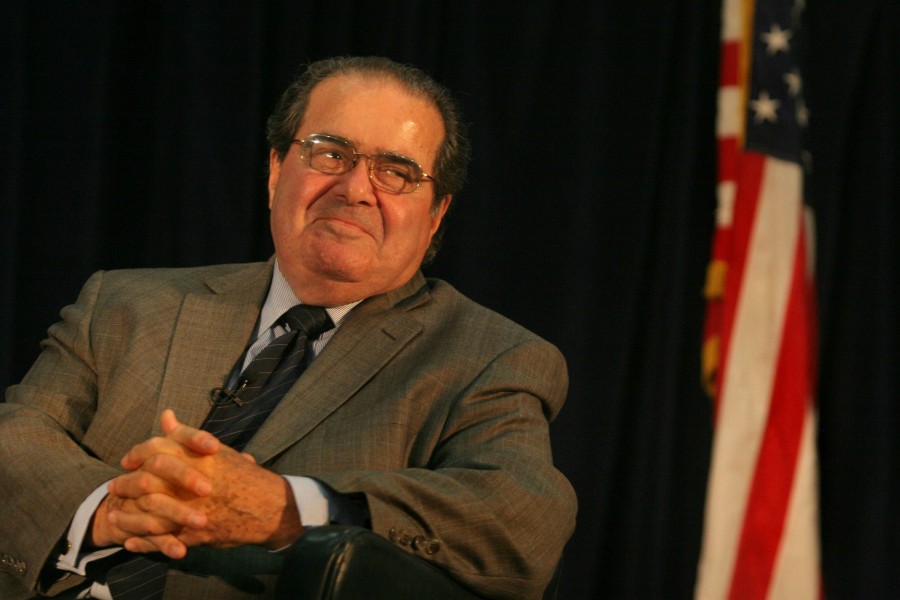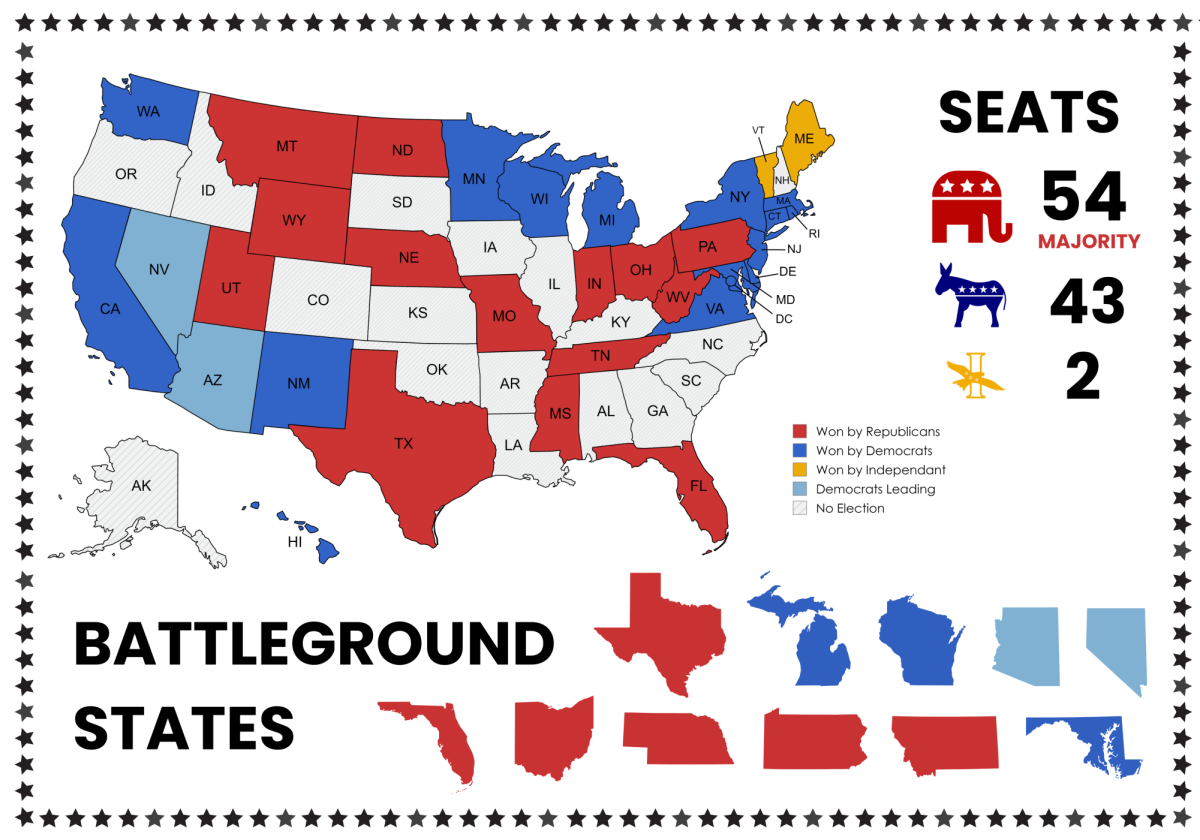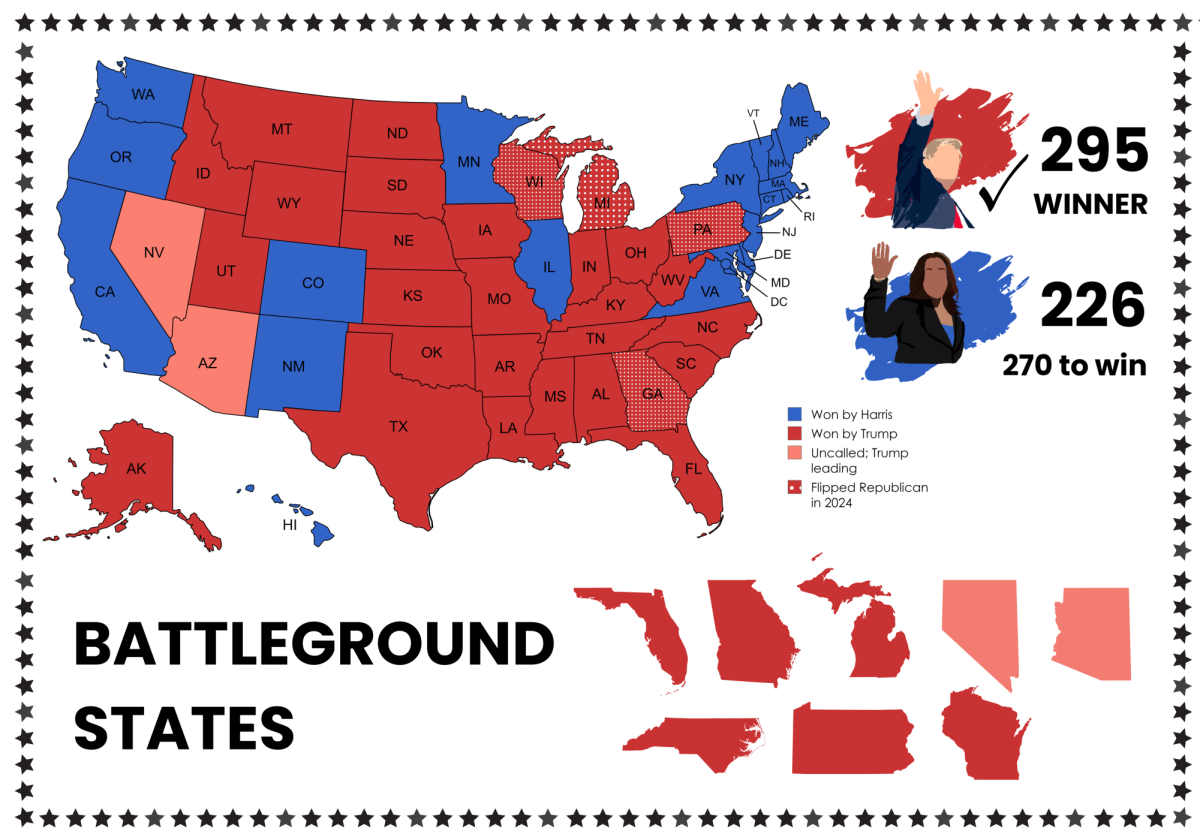Supreme Court Justice Antonin Scalia was declared dead on Feb. 13. Scalia was 79 when he died in his sleep from natural causes, according to CNN.
According to the Washington Post, Presidio County Judge Cinderela Guevara pronounced Scalia dead over the phone after law enforcement officials said “there were no signs of foul play.” Following Scalia’s death, his doctor released a letter citing Scalia having problems with “coronary artery disease, obesity and diabetes, among other ailments,” according to AP News Break.
Serving for a few months shy of 30 years on the Supreme Court, Scalia had a long reign in helping make nationwide decisions and a legacy just as long that came with his position. A memorial in Washington was held for the Reagan-appointed Supreme Court Justice on March 1.
Since Scalia’s death, questions have been circulating from the media, politicians, and the general public about what will be done about replacing Scalia. Controversy has engulfed the topic of President Barack Obama appointing a new Supreme Court Justice in his last year as president.
Obama is not the only president who has had a Supreme Court vacancy that needed to be filled during the last presidential term year. Former presidents Dwight Eisenhower, Franklin D. Roosevelt and Woodrow Wilson are some of the presidents who have had successful Supreme Court Justice appointment nominations and former Presidents Herbert Hoover, William Howard Taft and George W. Bush also nominated Supreme Court Justices late in their terms, according to Politifact.
Despite all of these former presidents nominating Supreme Court Justices in the last year of their terms, reluctance of approving a new nomination still stands. Senate Majority Leader Mitch McConnell, a Republican from Kentucky, recently made the statement, “There’s not a snowball’s chance in hell that’s gonna happen,” in a meeting when referring to Obama appointing a new Supreme Court Justice.
Supporters of Obama believe that McConnell and other politicians’ (such as Iowa Senator Chuck Grassley, Texas Senator John Cornyn, and Texas Senator and Republican presidential candidate Ted Cruz) threat to delay a Supreme Court nominee violates Article II, section II, clause II of the Constitution, which, according to The Heritage Guide to the Constitution, is that, “The President…shall nominate, and by and with the Advice and Consent of the Senate, shall appoint Ambassadors, other public Ministers and Consuls, Judges of the supreme Court, and all other Officers of the United States, whose Appointments are not herein otherwise provided for, and which shall be established by Law….”
For a government position, the requirements to becoming one of the nine Supreme Court Justices is fairly lax. The Supreme Court’s website states that, “The Constitution does not specify qualifications for Justices such as age, education, profession, or native-born citizenship. A Justice does not have to be a lawyer or a law school graduate, but all Justices have been trained in the law.” If you’re reading this, you’re likely eligible to submit an application to serve on the Supreme Court.
However, President Obama may appoint an already elected government official to fill the missing spot that Scalia’s departure has left. According to Reuters, “President Barack Obama is considering appointing a moderate Republican to the Supreme Court.” Currently, the nominees being considered for the spot of the new Supreme Court Justice are unknown and cannot officially be confirmed or denied quite yet.










![Mr. Abullh Ali, manager/assistant, helps open Queen Yemeni Coffee in downtown Libertyville at 606 North Milwaukee Ave. With the help of employees such as manager and LHS senior Yousef Taha, they are able to bring the Yemeni and Ethiopian culture to Libertyville by using their Queen spices, cinnamon and cardamom in their drinks such as Adani Chai, which is inspired by Sheda, the Queen of Yemen and Ethiopia. “The history of our coffee [is] a long history and we believe that Yemen and Ethiopia started the coffee and we are bringing something unique to the community,” Mr. Ali said.](https://www.lhsdoi.com/wp-content/uploads/2025/04/Photo-1-1200x800.jpg)


